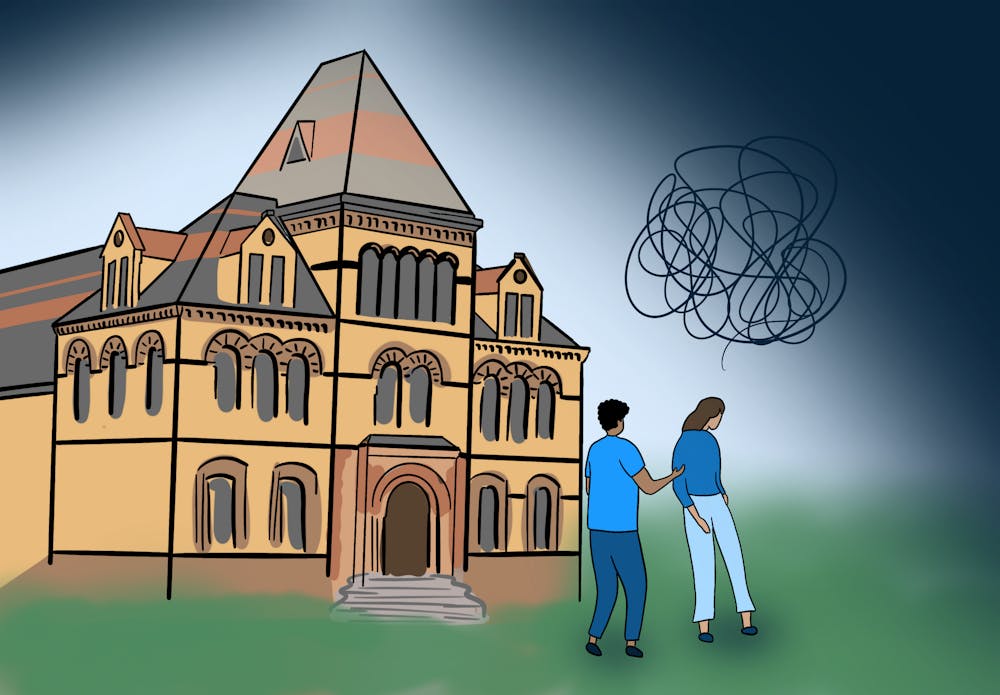We are just over a week since the 2024 presidential elections. A week since many of us, nervous yet hopeful, sat glued to our screens as we watched a painful red majority bleed onto the American map and elect Donald Trump as the 47th President of the United States. Since election night, it has been impossible to escape our new reality. Our devices have been ambushed with incessant news notifications, from announcing Trump’s final win of Arizona — and thus all seven swing-states — to his tentative appointment of Marco Rubio for secretary of state. Everyday we get a taste of what the next four years will look like and it is overwhelming. Trump’s victory is a harrowing nightmare, and for the Brown students who currently despair, give yourself grace in the next few weeks; this is a change that merits healthy processing.
There is still much unknown about what the next four years will look like, but there is plenty for students to be fearful about. Trump has made clear his intention to dismantle the Department of Education and fire thousands of civil servants in other federal agencies. Other proposed policies of a second Trump administration will have a profound impact on members of the Brown community. His infamous immigration agenda will place the roughly 400,000 undocumented college students and their families in a highly precarious position. Transgender youth also find themselves in the center of a vicious culture war as Agenda 47 promises to roll back federal protections for LGBTQ+ individuals. And women at Brown who hail from other states will continue to grapple with a bleak and inconsistent national landscape of reproductive health care — and prepare for the possibility of new, national restrictions on abortion and birth control. Even just by existing as college students, we are part of a culture of higher education — part of a group which Vice President-elect JD Vance has referred to as “the enemy.”
Beyond these tangible effects which will come with another Trump term, we must also grapple with the question of national identity. It has now become impossible to ignore the reality of our nation’s ideological division. While, at Brown, the Trump question is less dividing, we will be preparing to graduate and enter the workforce under the Trump administration and within a country who voted him into office. And we must come to terms with the fact that the country and its administration do not reflect some of our fundamental beliefs. We must search elsewhere to find leaders who we can look up to and see ourselves in.
In this moment of extreme frustration, fear, and uncertainty, it feels easy to embrace despondency, to turn inwards or remain in spaces where our views are validated. And as the nights get longer and Inauguration Day draws closer, it is necessary for us to process our disappointment and anger. But this turn to our communities should not be a retreat, but rather an opportunity to regroup.
Despite the results of the election, Brown is an exceptional place to be right now, not because of its political orientation, but because of its rich well of student organizations, affinity spaces and classrooms where we can rely on each other to discuss our hopes and anxieties about the future. Similarly, as many students prepare to travel home for Thanksgiving break, they will return to communities across the U.S. — and maybe beyond it. These, too, are the places we should find grounding in. Over the next four years, state and local government will become a critical space to fight for education, reproductive health, and climate justice while many such goals seem out of reach at the national level, at least for now.
Paul Hudes is a staff columnist and a member of the editorial page board for the Brown Daily Herald. His column is wide-ranging but focuses mostly on American politics. Paul studies Applied Math Economics and English Literature.
Yael is the senior editor of opinions of The Herald's 135th editorial board. She previously served as an opinions editor and a member of the Editorial Page Board. She is from Washington, D.C. and studies history and international and public affairs.





